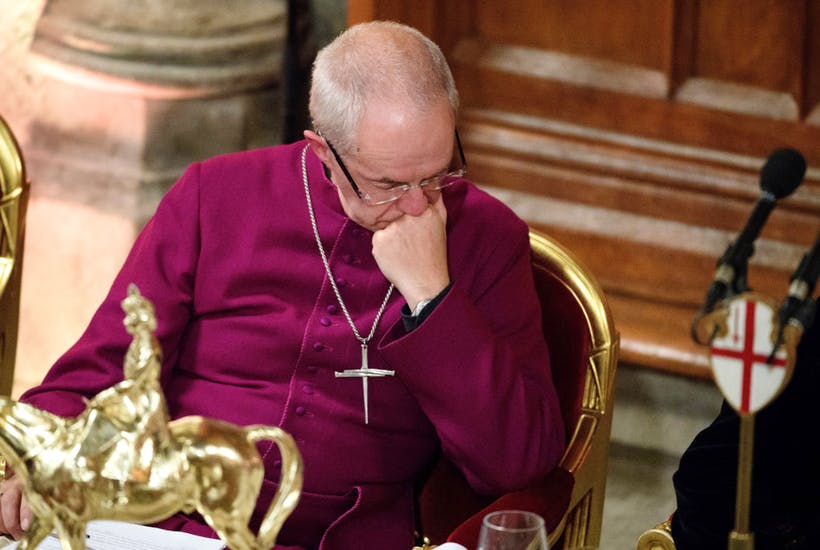The time has come to disestablish the Church of England. As a deeply partisan Prayer Book Anglican – a churchmanship naturally inclined to support the cause of antidisestablishmentarianism – I say that rather grudgingly. But it pains me to admit the established church and mother church of Anglicanism is no longer fit for purpose.
Atheists, militant secularists and those of non-Christian faiths have long supported my newly-held position, yet they often do so for other reasons, namely declining church attendance. They might claim that the Anglican expression of Christianity has little creditability as a state church if, practically speaking, nobody goes to services on a regular basis. And they might have a point. Other denominations could also make a credible claim as the national church, given that the Roman Catholic church draws more on a Sunday than the Church of England.
But regardless of this, the real reason for disestablishment is the church’s struggle to justify its existence in the modern age. This issue has become abundantly clear since Justin Welby assumed spiritual leadership of the Church of England and, by extension, the Anglican Communion, when he was enthroned as archbishop of Canterbury in 2013.
Just what is the Church of England’s reason for being? After all, the church is no longer fulfilling the Great Commission: the biblical command for Christians to propagate the faith and make disciples of Christ.
Earlier this year, Welby took the cultural Marxist line when he appeared to equate the church’s historic propagation of the gospel with the evils of colonialism. This is beyond ironic, given that colonialism is the only reason the Anglican Communion — defined by those churches in full communion with the archbishop of Canterbury — exists with 41 member churches outside the British Isles.
At the same time, I don’t hear His Grace decry the church’s ancient rights and immense privileges — seats in Parliament’s upper house for prelates, feudal titles, episcopal palaces, medieval cathedrals expropriated from Roman Catholics, for instance.
And what about Welby’s unparalleled access to the Establishment, including the Royal Family? The archbishop sits near the top of the UK’s order of precedence, ahead of every non-royal in Her Majesty’s realm. It is inconceivable he would have anywhere near the platform that he has now as the successor to St. Augustine of Canterbury if he was just a random preacher in costume clothing on Sunday mornings.
Imagine if, instead of decrying payday lenders and indicting Amazon, Welby zealously advocated for, to quote his predecessor Thomas Cranmer’s original 1549 Book of Common Prayer, “maintenaunce of Goddes true religion and virtue.”
Yet the thought of Welby – or any other senior bishop in the Church of England – confidently proclaiming that salvation comes not through works or even belief in other, non-Christians faiths, but by Christ, with Christ and through Christ, is virtually unthinkable in today’s politically-correct church.
It’s also worth considering how many in the church’s hierarchy are comfortable saying the creeds without wincing or crossing their fingers? An Anglican leader can deny the bodily resurrection of Jesus and still get appointed as Welby’s de facto ambassador to the church of Rome. Then there are the examples of churches and cathedrals hosting Muslim prayers and other Islamic rites that deny the divinity of Jesus.
The reality is the Church of England has become the equivalent of a public library: underused, but there for everyone, regardless of actual belief. This is hardly a way to run a church, which is fundamentally a membership-based organisation.
By joining the organisation as a member you get certain benefits denied to non-members. Presumably most people in the pews join to be saved from eternal damnation. Yet there is no reason to become a member or believe in anything if the organisation says non-believers, non-members and members of competing organisations can receive all the benefits. My analogy may be somewhat crude, but this is effectively the situation that Anglicans find themselves in today.
For the Church of England to survive, under Welby or his eventual successor, it must be willing to give up its earthly prestige and privileges and return to its intended purpose of bringing souls to Christ. This will require it to be in the world, but not of the world, with leaders willing to stand against popular culture in the name of the “maintenaunce of Goddes true religion and virtue.”






Comments